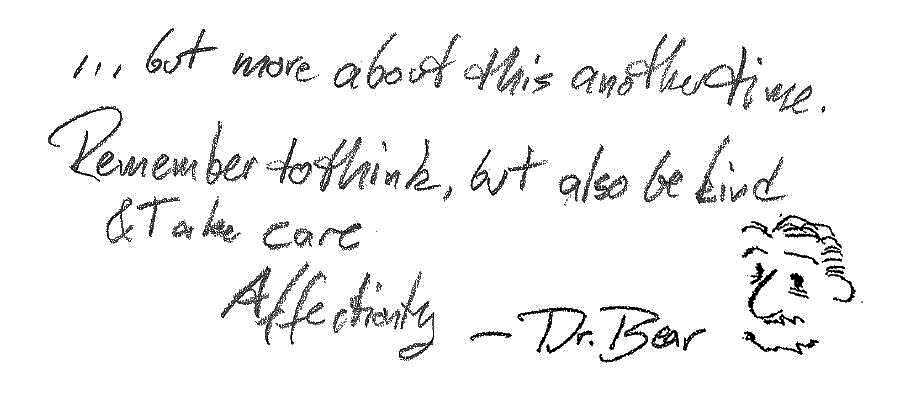 Note: this is an essay first posted for Fathers Day 2013
Note: this is an essay first posted for Fathers Day 2013
My dear Meg,
I’m not sure if you remember, but a while back there was a day we had a series of conversations, in which the phrase “Because he’s a boy” kept coming up. An example I recall was you wondering why in the world anybody would try to open a banana with a 10 inch butcher knife, and me explaining “because he’s a boy” (luckily, a boy with 10 fingers, for the time being).
Boys do silly, fun and sometimes dangerous things. It is part of being a boy. It is perplexing if you have never been one, but what are you going to do?
However, at some point, being a boy should stop—well, unless you are the one boy who never grows up; Peter Pan can be grand-fathered in, I suppose. Although if he never grows up, is the word grandfather appropriate?
As I was saying, at some point, being a boy should stop—or at the very least, diminish. In the greater life-cycle of the male of the species—we will use the generic term “guy’—there should at some point be a transition from boy to man. Yet, there seems to be a marked trend at the present away from this, and towards a prolonged male adolescence. Guys who are way past the point where they should have become adults are still being boys. It has even spawned a whole movie genre which the New York Times likes to call the “Man Child.” It appears to be making Judd Apatow rich. Of course, the target audience for these movies is guys in their 20s who themselves do not want to grow up. It can even extend to middle aged men with movies like Grown Ups. I’m not entirely sure it is possible to produce a comedy in which the men are not immature.
The whole thing mystifies me.
 Don’t get me wrong: I did enjoy being a boy, and was quite good at it (I have the stories, some of which you have heard, and the scars to prove it). Nevertheless, I remember looking forward to being a man. I wanted to be a man (OK, to be honest, I wanted to be a man, 36, and tenured, but that might just be me). A big part of it, though, was that my heroes were men. My movie heroes—John Wayne, Humphrey Bogart, Gregory Peck, Paul Newman, Robert Redford, etc.—were all men, even, what you might call “real men.”
Don’t get me wrong: I did enjoy being a boy, and was quite good at it (I have the stories, some of which you have heard, and the scars to prove it). Nevertheless, I remember looking forward to being a man. I wanted to be a man (OK, to be honest, I wanted to be a man, 36, and tenured, but that might just be me). A big part of it, though, was that my heroes were men. My movie heroes—John Wayne, Humphrey Bogart, Gregory Peck, Paul Newman, Robert Redford, etc.—were all men, even, what you might call “real men.”
Movie heroes, however, aren’t as vivid as flesh and blood heroes. My biggest reason for wanting to be a man was that the men in my life made it look so cool. My uncles were (and remain) people I wanted to be like. My grandfathers were both really great to spend time with. Watching Dad engaged in after dinner conversation with other men—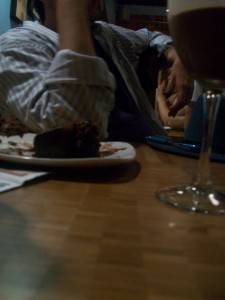 Fred Norris, Scott Bartchy, and the occasional passer through like Bob Wetzel or Bob Fife—was fascinating, and more entertaining than anything we boys did.
Fred Norris, Scott Bartchy, and the occasional passer through like Bob Wetzel or Bob Fife—was fascinating, and more entertaining than anything we boys did.
My father made being a man look brilliant and incredible.
He still does.
My goal was to be like him.
It still is.
Although being a boy was fun, I didn’t want to be a boy indefinitely.
I wanted to grow up and be a man.
I’m not sure at what point it became more appealing for guys to be boys rather than becoming men. Certainly by the time The Simpsons (which I love) came around, it was clear that it was cooler to be Bart than to be Homer (also more fun to be naughty, but that is another day’s column). But this shift is an alarming trend, and must be stopped before the entire world is populated by Adam Sandler wannabes.
Now, it won’t do for me to just say: Hey! Grow up! I should give some reasons why to be a man.
First (and this is a universal guy reason for doing things): It is attractive.
Although there is something charming about a man who can be a boy, there is nothing at all appealing about a 200 pound little boy.
 If they are trying to impress someone, especially if they are hoping for any kind of relationship, maturity is a real draw and immaturity is a real turn-off, don’t you think? And you, Meg, might be the kind of person a guy might want to impress.
If they are trying to impress someone, especially if they are hoping for any kind of relationship, maturity is a real draw and immaturity is a real turn-off, don’t you think? And you, Meg, might be the kind of person a guy might want to impress.
Related to this, by the way, a suit and a tie are much sexier than a ratty sweatshirt, baggy shorts, and a backwards baseball cap.
Also more appropriate for church, the theatre, or a date.
Don’t get me started on Man-Child wardrobes, but do let me warm the guys who are reading this to take off your hat in the Bistro; Wode Toad has a really long tongue.
Secondly: Responsibility.
Yes, I know that this is a scary word, and it is probably why these boys are avoiding growing up in the first place, but think about it: responsibility is a part of freedom. It is the price one pays for getting out of footed pajamas and the high chair and joining the adult world. As an analogy, getting a car means having a lot of freedom to go places, but it also means suddenly have a lot of responsibilities which keep it running. Being a grown-up is similar; it gives you new freedoms to go places, but it has its costs.
Being a man means taking responsibility for yourself and for others; it’s what men do. This may seem rather dull at the least and terrifying at the worst, but it has its perks.
Third: Fun.
Again, these boys probably are avoiding growing up because it doesn’t seem to be fun, but one can be a man and still be as playful as when one was a boy.
My father can be a very dignified gentleman. He also once spent a half an hour on his hands and knees in the kitchen entertaining a 2 year old by making zucchini and summer squash dance and run around.
 My uncle Dale is quite manly—even to the point of flying planes and working lumber in the Northwest—but is also sillier than any giggling little boy I know. He is also a world-class imaginary jacks player (personally, imaginary table tennis is more my style, mostly because it is noisier). Certainly he has more fun than most of the knuckle dragging college boys I see mumbling through the streets, slouching towards Numan’s Cafe & Sports Bar. Read Brandon’s articles on playfulness–he is more fun because he is responsible for the girls, not less.
My uncle Dale is quite manly—even to the point of flying planes and working lumber in the Northwest—but is also sillier than any giggling little boy I know. He is also a world-class imaginary jacks player (personally, imaginary table tennis is more my style, mostly because it is noisier). Certainly he has more fun than most of the knuckle dragging college boys I see mumbling through the streets, slouching towards Numan’s Cafe & Sports Bar. Read Brandon’s articles on playfulness–he is more fun because he is responsible for the girls, not less.
Men still play basketball, still yell at games, still play games, go on road trips (my Dad circumnavigates the globe, your dad flies his own plane), camp, kayak—you name it.
Finally, and most importantly for me: Pride.
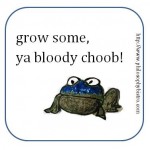 This is why I would not be able to abide being a permanent boy. Whenever I see one of these immature guys, I want to yell: where is your pride, man? It’s humiliating! To be a man is to take responsibility for who you are and what you do and to be able to look upon both of those and take pride in them. It is taking responsibility for others that you care about, or for commitments you have made, and taking pride in them. What does the overgrown boy have to take pride in? High Scores on their games? Their Graphic Novel collection? OK, that’s not so bad, but remember: by playing and by reading one is pretending to be somebody one can take pride in; by being a man they could actually be that person.
This is why I would not be able to abide being a permanent boy. Whenever I see one of these immature guys, I want to yell: where is your pride, man? It’s humiliating! To be a man is to take responsibility for who you are and what you do and to be able to look upon both of those and take pride in them. It is taking responsibility for others that you care about, or for commitments you have made, and taking pride in them. What does the overgrown boy have to take pride in? High Scores on their games? Their Graphic Novel collection? OK, that’s not so bad, but remember: by playing and by reading one is pretending to be somebody one can take pride in; by being a man they could actually be that person.
I don’t accept that boys will be boys; boys are meant to become men.
Take pride in yourself and grow up. Be a Man!
So, that is why one should be a man, but the bigger question, is: How does one go about being a man?
Of course, it goes without saying that mistreating women is cowardly and un-manly, and that being a man of quality also means treating children and animals kindly, but there are so many other practices involved in being a man…
Please greet Richard from me, Meg, and wish him a Happy Father’s Day.
 For the rest of you: a home cooked meal is the best thing for Dad (well, second to sailing), but if that doesn’t seem practical, remember that a hand-written note is always appropriate, if not that—would it kill you to call?
For the rest of you: a home cooked meal is the best thing for Dad (well, second to sailing), but if that doesn’t seem practical, remember that a hand-written note is always appropriate, if not that—would it kill you to call?
If nothing else, feel free to bring the great man to Dr.Bear’’s Philosophy Bistro.

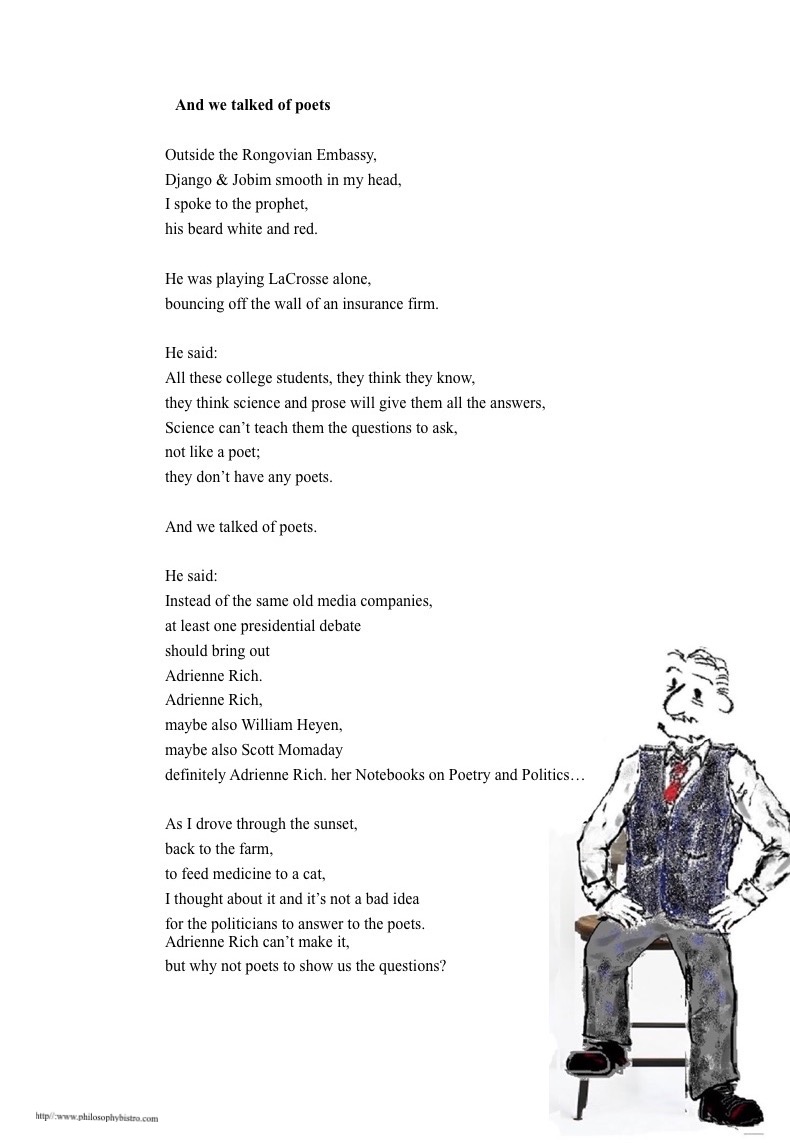





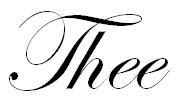
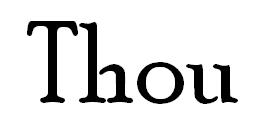
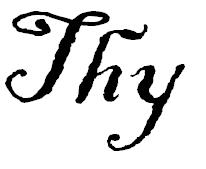
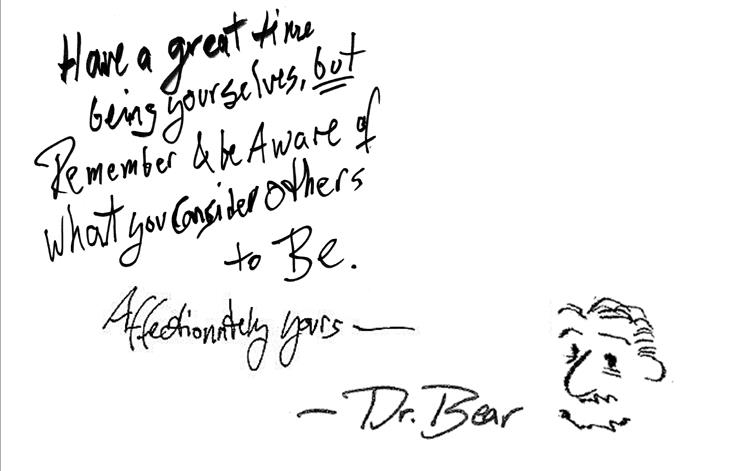



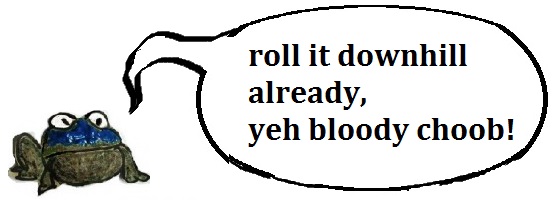


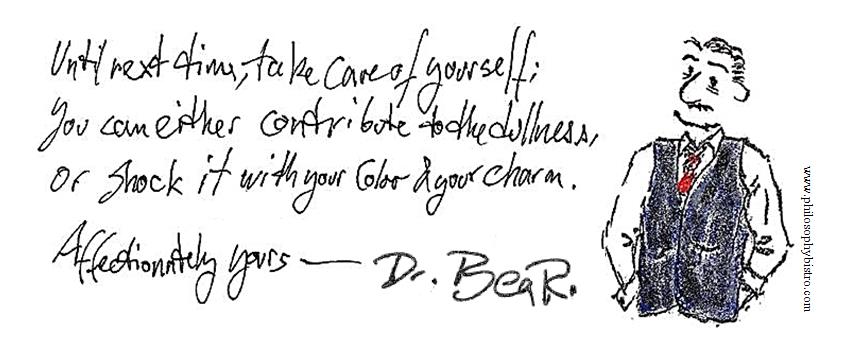

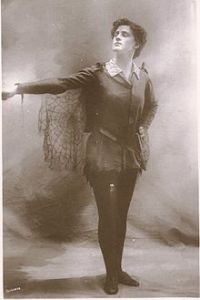

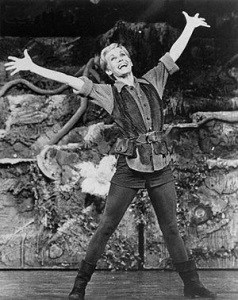
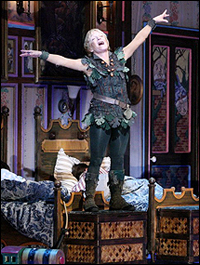




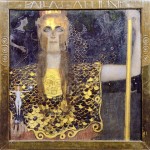
 I once told my daughter that she comes from a long line of strong-willed women and a long line of men who somehow got a kick out of strong-willed women.
I once told my daughter that she comes from a long line of strong-willed women and a long line of men who somehow got a kick out of strong-willed women.